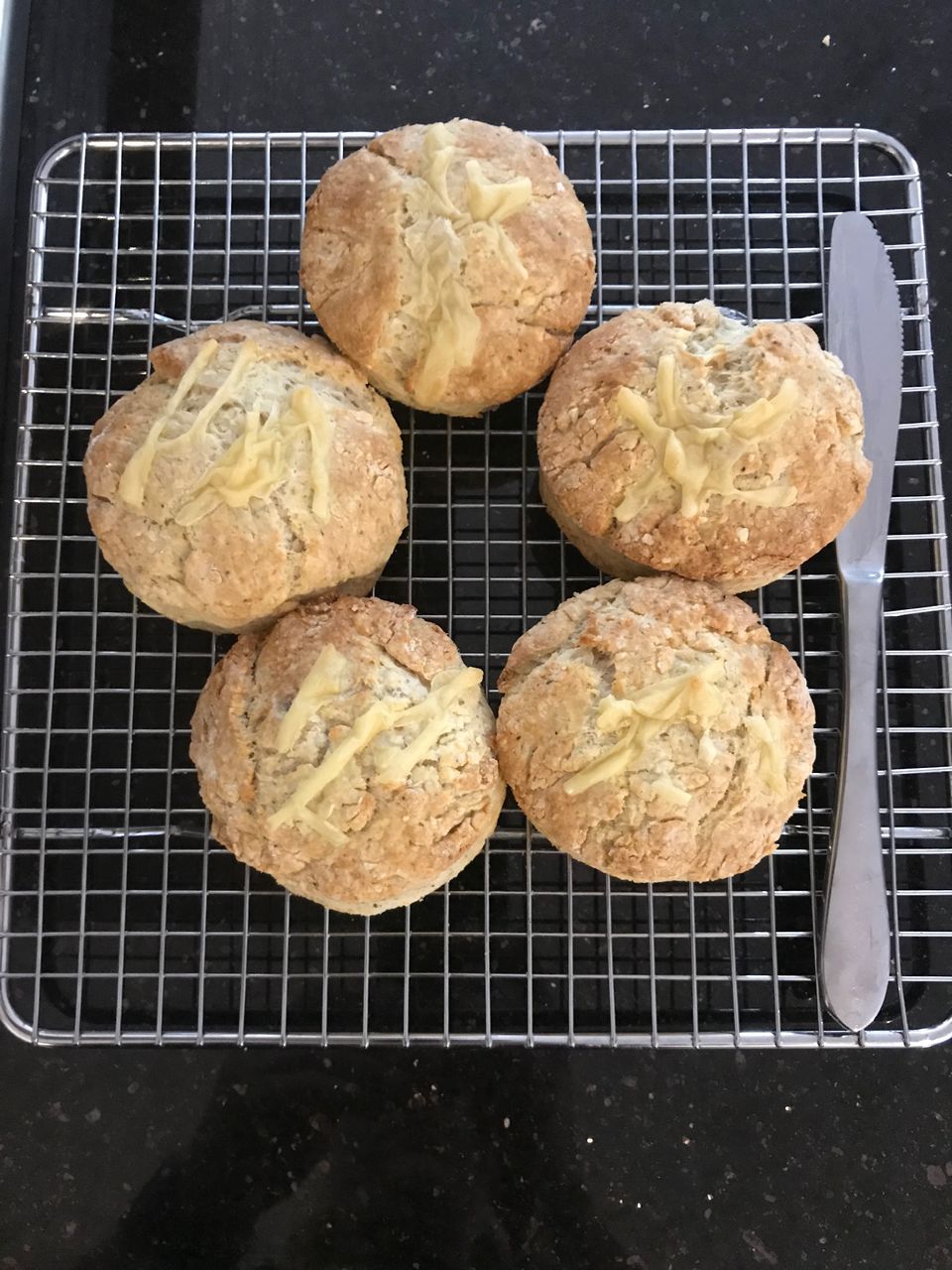Cheese Scones and tips

British summers are full of scones and tea. My lack of baking prowess is legendary, as is my love for a freshly baked treat. So a few months back I decided to knuckle down and master at least one simple recipe. Every Saturday for a month the kitchen rang to the sound of muttered curses softened by a dusting of flour. But I got there!
Turns out that all you need is:
- A recipe that works
- A reminder to stick to said recipe
- Patience.
I can’t really help you with the last one, but I assure you that patience is a skill which can be learned. In the interest of good scones it is worth it. Quite often I would get to the rolling out stage and think ‘that’ll do, can’t be bothered’. Rest assured that if you can take a deep breath before picking up the rolling pin again the scones will be better for it
Another baking time is touse a food processor to mix the butter into the flour. I have a simple, bench top processor and found that blending the butter into the dry ingredients gave pretty much the same result as rubbing it in slowly - but with far less mess and time.
Where PKU baking can come undone is in finding a good recipe in the first place. I’ve spent years trying to adapt non-PKU recipes to our specialist flour with varying success. This includes adapting “Recipe: 'Best' cheese scones from Olde Beach Bakery”. The recipe needed a few adaptations for PKU, but is now a firm favourite.
“Best cheese scones recipe” as adapted for PKU.
Gives 8 - 10 scones with a 2 inch cutter. The recipe is Phe free, assuming you use Phe free cheese & milk substitute.
Ingredients
- 1 cup of Phe free milk substitute
- 1 & 1/2 tsp psyllium husks
- 2 cups flour
- 3 teaspoons baking powder
- 1/2 teaspoon salt (optional)
- 50gm soft butter
- 1½ cups grated Phe free cheese substitute
- Mix 3/4 of the milk with the psyllium husks, leave to sit for 10 minutes while you get on with steps 2 - 4. Reserve the final 1/4 cup of milk for later. The recipe tends to be wet so you might not use all of the milk.
- Prepare a baking tray with baking paper or grease with butter/oil. Pre-heat oven to 165 fan. You may want to wait to turn the oven on until after step 4, depending on how quickly your oven heats up.
- Put the flour, baking powder and salt (optional) into a food processor. Add in the butter and blend until the mixture resembles bread crumbs.
- Move these ingredients into a bowl and rub in any last big lumps. You can either stir in all the of the cheese or reserve some to sprinkle on top later.
- Make a well in the centre and add the milk & psyllium mixture. Mix to form a soft dough, adding more of the reserved milk as needed to soften the dough. (Make sure your oven is on before you get flour everywhere in the next step.)
- Lightly flour a rolling pin, a board and your hands before tipping the dough on to the board. Shape it into a ball then roll into a disc about 2cm thick. Cut into rounds using a 2-inch cutter. Re-knead, roll out and cut further rounds from the dough trimmings.
- Brush the top of each scone with a little milk. You can sprinkle a little grated cheese on each one if you like. Bake in the pre-heated oven for 10-15 mins. If you want more colour on top, you can grill quickly.
- Let them cool but be sure to eat one while it is still warm!

Member discussion